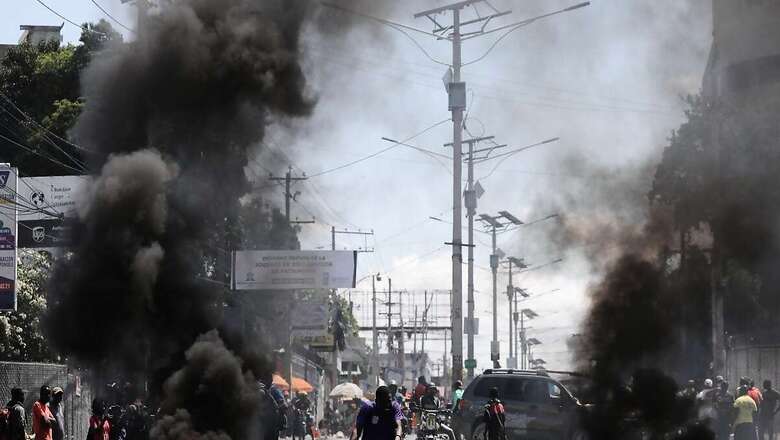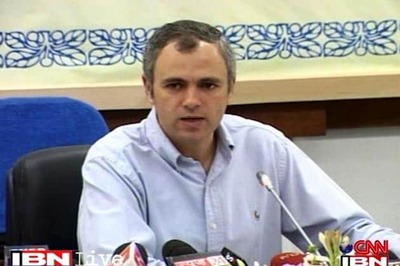
views
In the heart of the Caribbean, Haiti’s tumultuous journey has been marked by a series of catastrophic events and political mismanagement, pushing the nation into a state of civil unrest unparalleled in its history. The country’s current plight, characterised by extreme poverty, violence, and even reports of cannibalism, is a testament to the destructive power of freebie politics and the failure of its leadership to steer the nation toward stability and prosperity. This article explores the multifaceted crisis in Haiti, examining the root causes of its collapse and the dire consequences that have followed.
The Collapse of Haiti: A Mosaic of Misfortune
Haiti’s descent into chaos is not a result of a single event but rather a confluence of several factors that have compounded over time. The term “freebie politics” refers to the practice of political leaders using short-term handouts or benefits to win support from the populace, often at the expense of long-term development and governance. In Haiti, this approach has been rampant, with leaders offering immediate gratifications to secure loyalty while neglecting the fundamental aspects of nation-building, such as infrastructure, education, and healthcare.
The repercussions of such politics are evident in the nation’s economic stagnation and lack of public services, making it increasingly vulnerable to crises. When disasters strike, be it natural or man-made, the fragility of Haiti’s institutions becomes starkly apparent, leaving the population to bear the brunt of the fallout.
Cannibalism and the Exodus of Diplomats: A New Low
Recent reports from Haiti have been alarming, with instances of cannibalism emerging as a stark indicator of the dire humanitarian crisis. Such extreme acts of desperation highlight the severe food scarcity and breakdown of social order in the country. The international community has been shaken by these developments, leading to the evacuation of embassies, including that of the United States, signalling a loss of faith in Haiti’s ability to safeguard foreign nationals and maintain diplomatic relations.
The vacuum created by the departure of international diplomats has exacerbated the sense of abandonment among Haitians, further destabilising the already volatile situation. The international community’s response, or lack thereof, will play a crucial role in determining Haiti’s future trajectory.
The Impact of Covid-19
The pandemic has been a global disruptor, but its effects on already vulnerable nations like Haiti have been particularly devastating. The health crisis has overwhelmed the country’s fragile healthcare system, leading to widespread suffering and further economic decline. The pandemic has also interrupted the already limited foreign aid and investment, deepening the nation’s isolation and compounding its challenges.
Military and Political Mismanagement: A Legacy of Dysfunction
Haiti’s history is marred by a succession of military coups and unstable governments, with leaders often prioritising personal gain or political survival over the well-being of the nation. This pattern of mismanagement has eroded trust in public institutions and fostered a climate of impunity and corruption. The lack of accountable leadership has hindered effective governance, leaving the state ill-equipped to address the needs of its people or to implement policies that could foster stability and growth.
The Way Forward: Rebuilding Haiti
The path to recovery for Haiti is fraught with challenges, but it is not insurmountable. A concerted effort from both the national government and the international community is essential to address the immediate humanitarian needs and to lay the groundwork for sustainable development. Prioritising good governance, transparency, and accountability will be crucial in restoring public trust and building a more resilient Haiti.
The rebuilding process must also involve a reevaluation of the role of international aid, ensuring that it supports long-term development goals rather than perpetuating dependency. Empowering Haitian institutions and civil society will be key in driving the nation’s recovery and ensuring that the mistakes of the past are not repeated.
Conclusion
Haiti’s current crisis is a stark reminder of the perils of freebie politics and the importance of robust and accountable governance. The nation’s descent into chaos serves as a cautionary tale for other countries, underscoring the need for leaders to prioritise the long-term well-being of their citizens over short-term political gains. For Haiti, the road to recovery will be long and arduous, but with a renewed commitment to good governance and sustainable development, there is hope for a brighter future.
Group Capt MJ Augustine Vinod VSM (retd) tweets at @mjavinod; Squadron leader Varsha Kukreti (Retd) is the founder and CEO of AutoMicroUAS Pvt Ltd and Aeronne Dynamics Pvt Ltd. The views expressed in this article are those of the author and do not represent the stand of this publication.




















Comments
0 comment